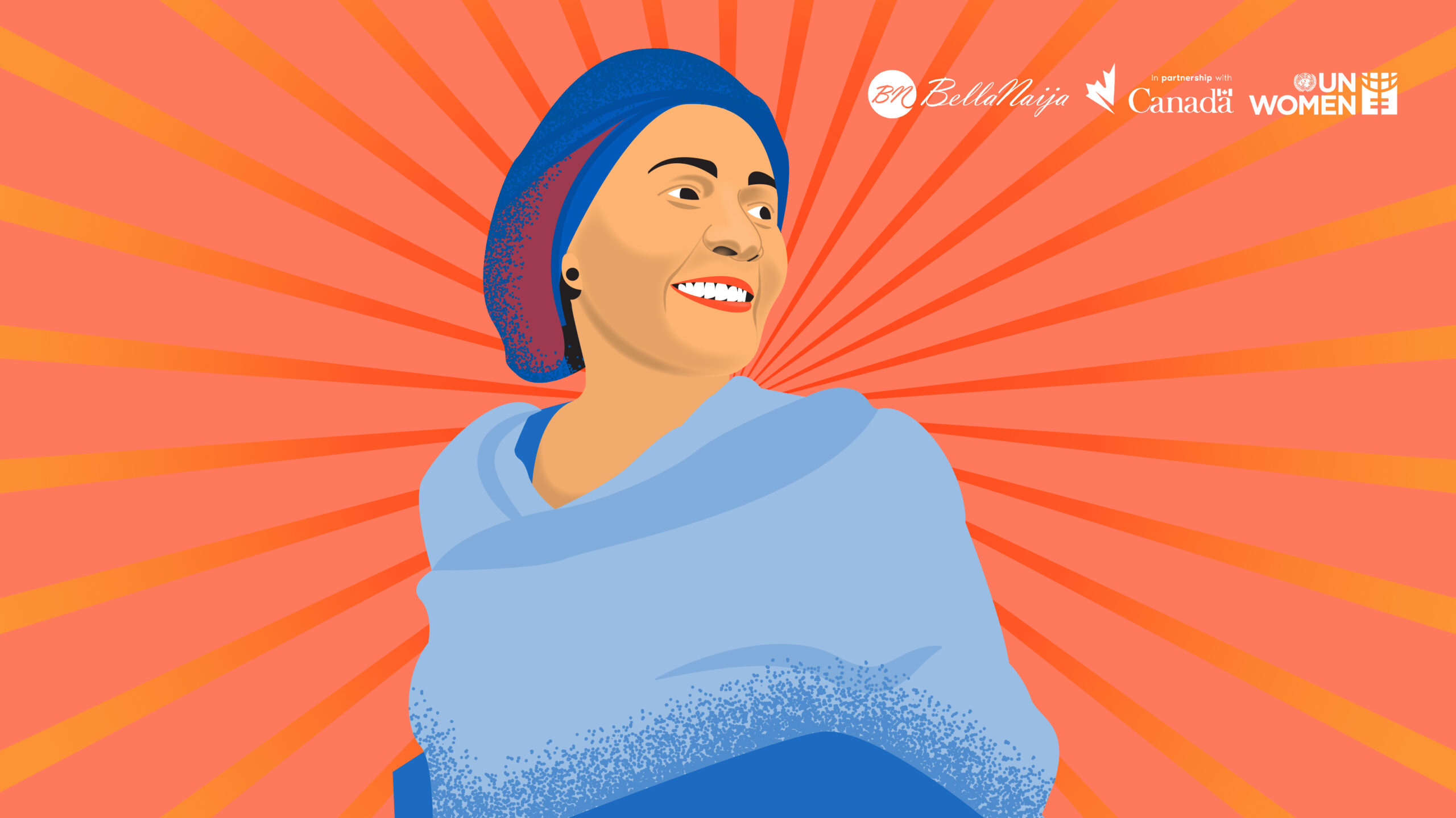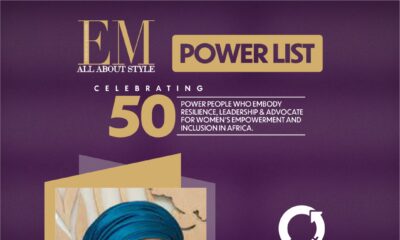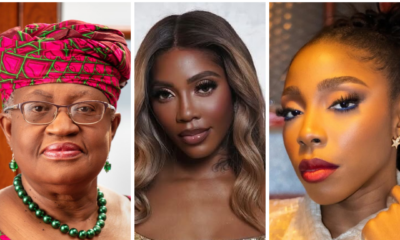Features
Meet Nigerian Women Shattering Glass Ceilings in Politics and Leadership

When we talk of women in politics and governance in Nigeria, we mostly focus on the gloomy statistics that remind us of the poor participation and low turnout of women.
Indeed, we cannot argue with the statistics that say women’s political participation has remained 6.7% in elective and appointive positions since the re-introduction of democracy in 1999, nor can we deny that, compared to some other African countries, there’s a need to do better in fostering women’s participation in governance. Still, there is a silver lining – that in the midst of it all, women who are currently in politics and governance in Nigeria and beyond are doing exceedingly well with track records of excellence and achievements to follow.
With this crop of women making Naija proud, home and abroad, and with the recent statistics that show over 44 million women fully completed their PVC registration and 1552 women are contesting in these forthcoming elections, the future is indeed bright and promising for women’s political participation.
Without further ado, let’s talk about Nigerian women killing it in politics and leadership.
Ngozi Okonjo-Iweala
You know her, we do too – the world knows Ngozi Okonjo-Iweala for her brilliance. Ngozi Okonjo-Iweala served as Nigeria’s Finance Minister twice (2003-2006 and 2011-2015) and briefly acted as Foreign Minister in 2006. She is the first woman to hold both positions.
Ngozi Okonjo-Iweala is currently the seventh Director-General of the World Trade Organisation and the first woman and African to hold such a position. With over 30 years of experience working in Asia, Africa, Europe, Latin America and North America, she is an economist, an international development professional, and a global finance expert.
Before becoming the DG of WTO, She had a 25-year career at the World Bank as a development economist, rising to the number 2 position of Managing Director, Operations. She is renowned as the first female and African candidate to contest for the presidency of the World Bank Group in 2012.
Betty Apiafi
Senator Betty Apiafi is an economist, retired banker, educationist, and former member of the Nigerian House of Representatives. Betty Apiafi represents Rivers West and has sponsored many bills, including Criminal Code Act (Amendment) Bill 2019, Federal Medical Centres Bill, 2019, Marketing (Breast Milk Substitute) Act (Amendment) Bill 2019, Tertiary Education Trust Fund Act (Amendment) Bill, 2019, Police Act (Amendment) Bill, 2019.
She also moved some notable motions such as a motion to monitor the Nigerian Flare Commercialisation Programme towards ending Gas Flaring by 2020, and a motion on the 2020 International Women’s Day.
Amina J. Mohammed
Amina Mohammed served as the Former Nigerian Minister of Environment. She is currently the Deputy Secretary-General of the United Nations and Chair of the United Nations Sustainable Development Group. When Amina Mohammed first joined the United Nations in 2012 as Special Adviser to former Secretary-General Ban Ki-moon with the responsibility for post-2015 development planning, she led the process that resulted in global agreement around the 2030 Agenda for Sustainable Development and the creation of the Sustainable Development Goals.
Amina Mohammed has been conferred several honorary doctorates and has served as an adjunct professor, lecturing on international development. She also served on numerous international advisory boards and panels.
Biodun Christine Olujimi
Biodun Olujimi is a Nigerian politician, and senator representing the Ekiti South constituency. She was a board member of the Nigerian Communications Commission, a former deputy governor of Ekiti State and an immediate past Senate Minority Leader of the Senate.
Senator Biodun Olujimi sponsored the Gender and Equal Opportunity Bill that was later rejected by the 7 and 8th Senate and had to be withdrawn after the Senate was split along cultural and religious concerns.
Enoh T. Ebong
Enoh T. Ebong is the Director of the U.S. Trade and Development Agency. She was nominated by US President, Joe Biden to serve as USTDA’s Director, and was confirmed by unanimous consent of the U.S. Senate.
Before then, she served as attorney–advisor for the United States Trade and Development Agency for 3 years and was the acting regional sub-director for Sub-Saharan Africa.
Natasha Akpoti
Natasha’s political journey is one of resilience in a male-dominated political space. When Natasha Akpoti contested to become Kogi State’s governor, thugs reportedly attacked her with guns during the campaign. And although she did not win the Kogi State gubernatorial election in 2019, Natasha stepping into the political ring is a huge encouragement to many Nigerian women.
Bola Adesola
In April 2018, the Secretary-General of the United Nations, Antonio Guterres, confirmed the appointment of Bola Adesola, as Co-Vice Chair to the world’s largest corporate sustainability initiative, United Nations Global Compact (UNGC).
Before this, Adesola had served on the Board of the United Nations Global Compact previously, She was also Chief Executive Officer and Managing Director of Standard Chartered Bank Nigeria Ltd. She has over 25 years of banking experience, including at First Bank of Nigeria and at Citibank.
What can we learn from these women?
Three key words: audaciousness, brilliance, resilience. The ability to dream, back it up with actions and execute perfectly. These and many more women not mentioned represent many Nigerian women who, in the midst of a volatile political and socio-economic system, come through for themselves, their community and society at large.
As we vote in the coming elections and start a new government, we must bear in mind that a progressive country starts with a balanced representation of both genders. We need women to be on the table when policies and decisions are being made. We need women up there to show other women and girls the possibilities that abound.
There’s research to know that if we achieve gender equality, especially in the political space, Nigeria may likely spend 6.87% less of its current security spending. We could save 66.4 billion annually from our defence spending and 265.6 billion in 4 years if women are represented at the helm of affairs.
The above has shown that women are equally capable of excelling in bigger roles, locally and globally, so it is also important to let go of gender biases and give every competent woman a chance.
The future of women in politics and governance already looks good but one way to make it even better is to go out there to cast your vote on election day. Like the women above, it’s time to be audacious. It is time to push forward!






















